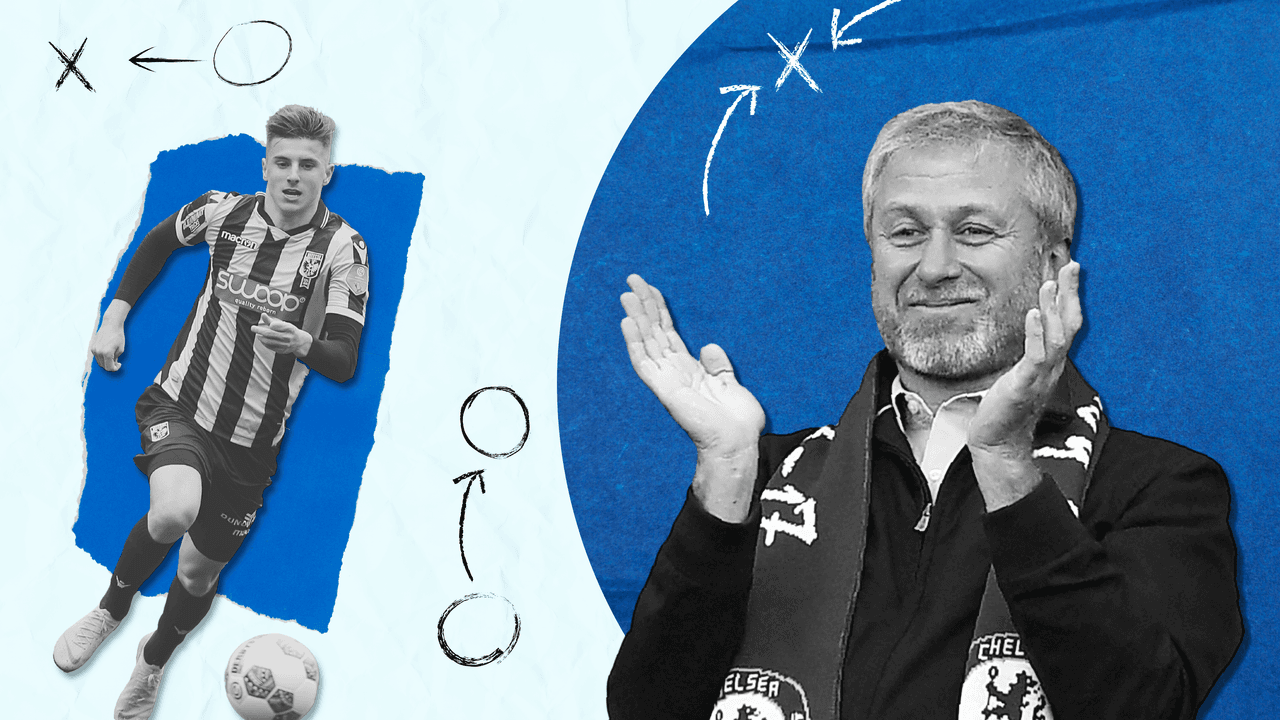
Roman Abramovich bankrolled major Dutch club while Chelsea owner
Roman Abramovich secretly funded the takeover of a major Dutch football club and then bankrolled it for years while he was Chelsea owner, leaked documents seen by the Bureau of Investigative Journalism and the Guardian appear to show.
The Russian oligarch appears to have covertly funded the 2010 acquisition of Vitesse Arnhem via a complex network of offshore entities before going on to channel at least €117m to the club. During this time Vitesse and Chelsea enjoyed a close affiliation, doing regular business together, but representatives for Chelsea and Abramovich have repeatedly denied any formal link between the two clubs.
The Dutch football federation (KNVB) twice investigated Vitesse in the wake of its takeover by Merab Jordania, a former footballer who described Abramovich as his friend, but both times found no common management between the clubs and “no indications that Chelsea has a say in Vitesse’s policy”.
The first investigation into common ownership ties came soon after the takeover, by which point Chelsea had begun to use Vitesse – a historic and well-supported club in the Dutch Eredivisie – as a partner club where players could be sent on loan to gain competitive experience. The Serbia international Nemanja Matic and the England star Mason Mount were among the huge number of Chelsea players who went to Vitesse on loan during Abramovich’s time as owner.
A second KNVB investigation was prompted by comments made by Jordania in 2014, not long after he had left the club and another Abramovich associate took over: the Russian businessman Alexander Chigirinsky, who at this point revealed he had been involved in financing the 2010 purchase. In a public parting shot, Jordania had said that Vitesse’s bid for the 2012/13 Eredivisie title – and Champions League qualification – had been hindered because “London didn’t want that”.
Uefa rules prevent two clubs under common ownership playing in the same competition and Jordania’s remarks were interpreted as an accusation that Chelsea, which regularly competed in the Champions League, had wanted to avoid any potential problems or further questions about the two clubs’ links. Both clubs denied this at the time and Jordania has since withdrawn the claim.
But TBIJ and the Guardian have now seen a trove of secret documents which indicate that Abramovich was not only behind the takeover but that he went on to bankroll Vitesse’s spending with a series of loan arrangements totalling more than €160m, of which at least €117m was taken on. This was a huge investment for Vitesse, whose total turnover in 2014-15 was €14m.
The leaked documents do not show that Abramovich had any managerial influence over Vitesse and he did not respond to the questions put to him regarding the arrangements with the Dutch club.
The loans were structured through a network of trusts and companies in offshore tax havens where basic financial details do not have to be publicly disclosed. The documents were in the Oligarch Files, a cache of leaked data originating from the Cyprus-based offshore service provider MeritServus.
Jordania told the Guardian that Abramovich and Chigirinsky had lent him money when he needed it for Vitesse. “This is true, yes,” he said. “It was my personal project and they supported me very much when I bought the club with my resources, and then when I started the project sometimes money wasn’t enough and I was also using money of my friends, and first of all Roman Abramovich, Chigirinsky.”
He said that although he explained to Abramovich that he needed the money for Vitesse, the money was lent to him personally, not directly for Vitesse.
“It was, let’s say, personal debt – my personal debt to Abramovich and Chigirinsky.”
Abramovich bought Chelsea in 2003 having become a billionaire through a series of deals in Russia that gave him control of a vast oil company, Sibneft. The billions of pounds he put into the club brought unprecedented success, including five Premier League titles and two Champions League titles, before he sold it last year while subject to sanctions following Russia’s invasion of Ukraine.
Chelsea stressed that the club has been under new ownership since May 2022 and questions relating to Vitesse should be directed to Abramovich. Bruce Buck, who was the Chelsea chairman throughout the period, told the Bureau he “has no knowledge or recollection” of the arrangements. Another former director said that, where appropriate, transactions between Chelsea and other clubs involved external advisers “to ensure full compliance with all laws, rules, and regulations”.
 Nemanja Matic and Mason Mount were both loaned to Vitesse while Roman Abramovich was bankrolling the club
Credits: ANP; Peter Lous/Soccrates/Getty
Nemanja Matic and Mason Mount were both loaned to Vitesse while Roman Abramovich was bankrolling the club
Credits: ANP; Peter Lous/Soccrates/Getty
The KNVB’s first investigation into possible links between Chelsea and Vitesse reported to Uefa in 2010 that Marindale Trading, a company recently registered in the British Virgin Islands, had facilitated the funding for Jordania to buy the Dutch club. It found that “through a web of companies” a connection could be made with a company owned by Chigirinsky and his brother, in which Abramovich had a 16% stake. But the KNVB wrote that they had found no “certainty about the possible managerial influence from Mr Abramovich or the brothers Chigirinsky”.
The new documents reveal a chain of further loans that were routed to Marindale Trading through a network of entities in different tax havens that appears ultimately to lead to Abramovich. In August 2010, one of Abramovich’s companies, the BVI-registered Ovington Worldwide, lent €20m to Trigonia Anstalt, an entity registered in Liechtenstein that, documents indicate, was linked to Chigirinsky.
On the same day a loan of an unknown amount was made from Limburg Holdings, an offshore entity based in Belize, to Marindale Trading. Documents suggest both these companies were owned by Chigirinsky. Ten days later Marindale Trading lent €20m – the exact sum initially lent by Abramovich’s company – to the company Jordania used as the vehicle to buy Vitesse.
During the subsequent three years that Jordania owned Vitesse, five further loans were made that all followed the same pattern (Route 1 in graphic below). Abramovich’s company Ovington lent millions of euros to the Liechtenstein company linked to Chigirinsky, the Belize company then amended its loan to Marindale Trading, and then Marindale Trading lent the exact same amount of money to Vitesse, almost always on the same day.
The documents do not show a link between the Liechtenstein company and Limburg, but identical matches of the dates and figures strongly suggest this was the path the money ultimately took.
After Jordania left in 2013 and Chigirinsky formally took over as Vitesse’s owner, the documents show that the pattern continued but with a different route (Route 2). Abramovich’s company, Ovington, lent millions directly to the Belize-based company that appears to have been owned by Chigirinsky. That entity in turn lent money each time to Marindale Trading, which lent the exact same sum to Vitesse. At least one of these loans was made even while the KNVB was conducting the second investigation.
Soon after the investigation concluded, the loans were rerouted a final time (Route 3) when another Abramovich company, linked to a different trust, took over as lender. By December 2015, the total loans made available by Abramovich’s companies in this way perfectly matched the figure ultimately made available to the company through which Chigirinsky funded Vitesse: €166m.
The KNVB said its first investigation had relied on public information and the second was based on information and documents provided by Vitesse. It added that it “will take any and all appropriate action in its power based on the evidence that comes to light”.
The files do not include documents relating to the loans after 2016, so do not reveal if further Abramovich loans were made after that or whether they were fully reimbursed. In 2018, another close Russian associate of Abramovich and former vice-president of Sibneft, Valeriy Oyf, took over Vitesse from Chigirinsky.
A Vitesse spokesperson told the Bureau that at the time of the sale, the loans from Marindale Trading to the club’s holding company stood at €136.6m but denied any knowledge that the funds ultimately came from Abramovich.
In March last year, the day after the UK sanctioned Abramovich, Oyf announced plans to sell his Vitesse shares and the club was sold to US investment company Common Group in September. Oyf told the Bureau that Vitesse acted in accordance with laws and sporting regulations during his ownership and his decision to sell was prompted by pressures resulting from the Russian invasion of Ukraine. He confirmed he had waived loans owed to him by the club of €155m.
The revelations come as calls for greater financial transparency in football have reached the highest stages of UK government following the controversial takeover of Newcastle United by the Saudi Public Investment Fund and the multibillion-pound bid to buy Manchester United by Sheikh Jassim bin Hamad al-Thani of Qatar.
Last month a white paper was presented to the House of Commons outlining plans for a new independent regulator to oversee English football. The move would establish a test for owners and directors to ensure “enhanced due diligence on sources of wealth”.
Chigirinsky did not respond to requests to comment.
Header image: Mason Mount in action while on loan at Vitesse and the former Chelsea owner Roman Abramovich.
Reporters: Simon Lock, David Conn and Rob Davies
Finance editor: Franz Wild
Impact Producer: Lucy Nash
Global editor: James Ball
Bureau editor: Meirion Jones
Production editor: Alex Hess
Fact checker: Alice Milliken
Our Enablers project is funded by Open Society Foundations, the Hollick Family Foundation, Sigrid Rausing Trust, the Joffe Trust and out of Bureau core funds. None of our funders have any influence over the Bureau’s editorial decisions or output.
-
Area:
-
Subject:




